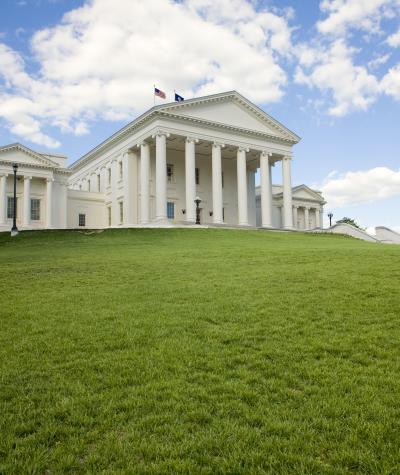On March 31, 2021, Virginia Governor Ralph Northam signed into law the Voting Rights Act of Virginia, H.B. 1890, establishing Virginia as a national leader in protecting voting rights for communities of color.
The federal Voting Rights Act (VRA) of 1965, which prohibited discrimination in voting based on race, color or membership in a language minority group, is one of the most transformative pieces of civil rights legislation ever passed.
Since 2013, however, when the Supreme Court gutted many of the VRA’s most important protections, civil rights advocates have struggled to keep up with the deluge of state and local laws making it harder to vote—especially in places with long histories of discrimination against voters of color.
Without the full protection of the federal VRA, it has been left up to states to protect communities of color from voting discrimination. Three states so far—California, Oregon and Washington—have done so by enacting state voting rights acts.
Today, Virginia became the fourth.
Like other state voting rights acts, the Voting Rights Act of Virginia, fills important gaps in the federal VRA and goes even further, creating mechanisms to ensure that all communities of color have the means to enforce their equal voting rights.
For example, while the federal VRA requires communities alleging discrimination to show that they are big enough and segregated enough to receive relief, H.B. 1890 recognizes that minority communities can have their rights diluted whether they are residentially segregated or geographically dispersed.
For that reason, H.B. 1890 does not require communities of color to be segregated to enforce their rights. H.B. 1890 also expands the remedies available to ensure full and equal enfranchisement of communities of color. This allows for more tailored, impactful solutions to address local instances of voting discrimination.
Still, H.B. 1890 doesn’t just provide more avenues to remedy discrimination after it has occurred. It also ensures that jurisdictions across Virginia consciously consider communities they have ignored historically before they make changes to their electoral system.
H.B. 1890 does this by requiring cities and counties to publish certain electoral changes in an easy-to-find, publicly accessible format, solicit public comments and hold at least one public hearing.
Alternatively, cities and counties may present proposed electoral changes to the Virginia Attorney General, who is empowered to prevent any discriminatory practices from being implemented. Combined, these requirements ensure that historically disenfranchised communities will have their voices heard and reflected in the electoral process, and all changes to it.
The last (but certainly not least) of H.B. 1890’s positive innovations is its requirement that cities and counties with sizeable language minority communities provide voting and election materials and interpretation services in native languages in addition to English.
By doing this, H.B. 1890 ensures that no Virginian is excluded from democratic participation simply because they cannot speak or understand enough English to engage in the electoral process.
All told, H.B. 1890 will help to ensure that communities of color across Virginia are able to participate equally in the election of their representatives. That is reason enough to celebrate its passage. This bill becoming law is a recognition that democracy works best when every voter participates.
At the same time, however, we cannot forget what brought us to the point of needing state voting rights acts like H.B. 1890 in the first place: the gutting of the federal VRA.
Federal legislative reform is as necessary today as it was in 1965, to eliminate the patchwork of laws that leave voting rights protections up to states, many of which are not as inclined as Virginia to remedy historical or ongoing discrimination.
The For the People Act, H.R. 1/S. 1, is our opportunity to do just that—bringing the protections in Virginia’s H.B. 1890 to the national level and ensuring that all Americans have an equal right and opportunity to participate in our democracy.

